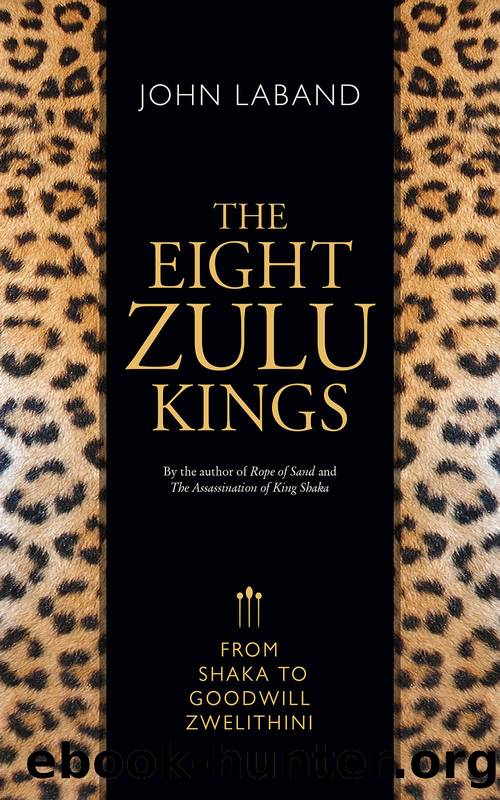The Eight Zulu Kings â From Shaka to Goodwill Zwelithini by John Laband

Author:John Laband
Language: eng
Format: epub
Publisher: Jonathan Ball Publishers
Published: 2018-07-26T08:29:22+00:00
CHAPTER FOURTEEN
THE WHITES HAVE COME TO FIGHT WITH ME
In January 1877 Sir Theophilus Shepstone, the newly appointed British Special Commissioner in the Transvaal and previously the Secretary for Native Affairs in Natal, entered the ZAR with a small escort of 25 Natal Mounted Police. He carried in his valise secret instructions entrusted to him by the Earl of Carnarvon, the Secretary of State for Colonies, to annex the republic to the Crown.
Shepstoneâs démarche had its roots in the anxieties of Tory imperial strategists. They regarded the intensifying jostling among the rival European powers to acquire new territories abroad as a perilous moment for Britain, urgently requiring them to consolidate and defend the Empire. To their way of thinking, India, rather than Africa, was central to British commercial interests and its status as an imperial power. Nevertheless, Indiaâs security depended on the Royal Navyâs control of the African sea routes through the Suez Canal and around the Cape. It was essential, therefore, to secure South Africa as a strategic link, and Carnarvon argued that this could best be achieved through knitting together a politically stable British confederation of the subcontinentâs white settler states.1 Thanks to the discovery of diamonds in 1867 in the northern Cape and the enormous wealth being generated at the Kimberley diggings, the whole region was being sufficiently transformed economically to support the edifice of the envisaged confederation.
Nevertheless, serious obstacles would have to be overcome. The Cape, Natal and Griqualand West were already British colonies,2 but British rule would have to be extended over the Boer republics of the interior. Of the two, it would be more difficult to incorporate the isolationist ZAR than the Orange Free State, with its close social and economic ties to the Cape.3 A further challenge was posed by the endemic wars with African neighbours along the frontiers of the Cape and the Boer republics. These conflicts threatened to destabilise the whole region and to be an ongoing drain on British and settler military resources. The Tory administration was attempting to economise on the costs of empire, and the last thing it wanted was to be compelled to maintain large garrisons of British troops in South Africa to prop up the new confederation. So it was clear to Carnarvon that it was imperative that he also break the military power of the remaining independent African kingdoms, disarm them, and impose some form of British supremacy over them to keep the peace.
The Boer-Pedi War of 1876â1877 gave Carnarvon the lever he was seeking. When he learned that the Pedi of the Maroteng paramountcy, ruled by Sekhukhune woaSekwati and bordering the eastern ZAR, had inflicted a decided reverse on the inept forces of the anarchic and bankrupt republic, he seized on the Boer military debacle as an excuse to annex the ZAR preparatory to dealing conclusively with the recalcitrant Pedi.
Shepstone, his chosen instrument to bring about this political coup, did not disappoint. The ZAR, overwhelmed by the burden of its national debt, was paralysed by divisions between political factions.
Download
This site does not store any files on its server. We only index and link to content provided by other sites. Please contact the content providers to delete copyright contents if any and email us, we'll remove relevant links or contents immediately.
| Africa | Americas |
| Arctic & Antarctica | Asia |
| Australia & Oceania | Europe |
| Middle East | Russia |
| United States | World |
| Ancient Civilizations | Military |
| Historical Study & Educational Resources |
The Third Pole by Mark Synnott(954)
Money for Nothing by Thomas Levenson(948)
The Economist (20210109) by calibre(937)
Christian Ethics by Wilkens Steve;(860)
Made in China by Anna Qu(855)
The Age of Louis XIV: The Story of Civilization by Will Durant(833)
Nonstate Warfare by Stephen Biddle(815)
Reopening Muslim Minds by Mustafa Akyol(813)
100 Posters That Changed The World by Salter Colin T.;(786)
The Shortest History of China by Linda Jaivin(779)
Culture by Terry Eagleton(776)
The Great Pyramid Void Enigma by Scott Creighton(761)
The Irish Buddhist by Alicia Turner(760)
Ideology by Eagleton Terry;(743)
Routledge Handbook of Contemporary India by Knut A. Jacobsen(742)
Sybille Bedford by Selina Hastings(690)
The Jews of Silence: A Personal Report on Soviet Jewry by Elie Wiesel(688)
Banaras: CITY OF LIGHT by Diana L. Eck(680)
Objects of Vision by Saab A. Joan;(670)
